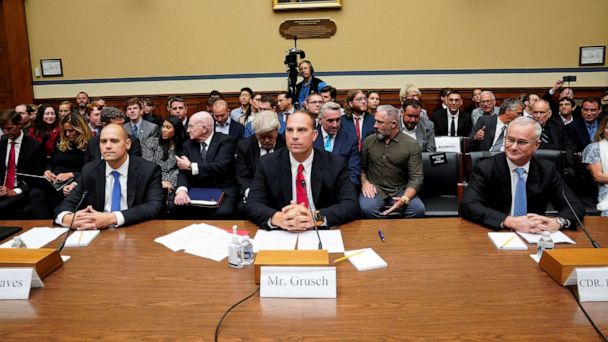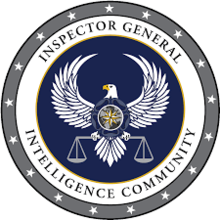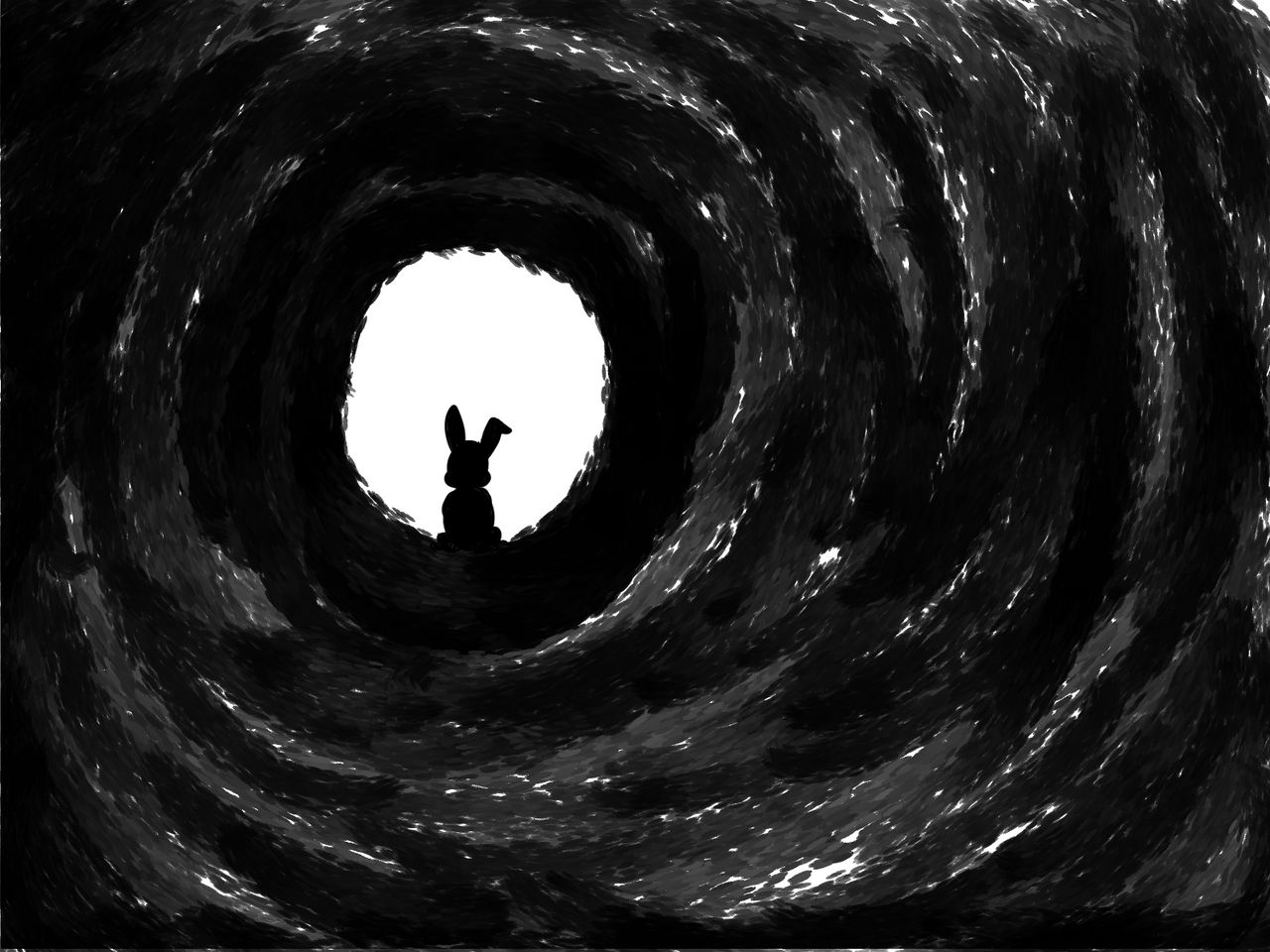Of SCIF’s, OIGs and IGs: More on the Grusch Affair
[The following arose as a long tangent during the course of writing up my thoughts on this year’s SCU “Anomalous Aerospace Phenomena” conference. For the sake of the sanity of my three readers, I thought I would segregate these thoughts in an entirely separate post. My review of this year’s AAPC is in preparation and should be released in the next week or so.]
It’s not clear what the real epistemic effect will be of the “SCIF” offering which Grusch, several times, made to the congresspeople presiding over last week’s bombshell hearing, or directing questions to him. (You can read the transcript of the hearing for yourself to see how many SCIF offers he made, and to whom he made them. Is anyone going to keep tabs on whether those congresspeople given the invitation actually follow through?) Let’s suppose for fun that congressperson X steps into the SCIF with Grush, and Grusch spills the beans: names, locations, … you name it: here’s the beef. What happens? Well, insofar as the information in Grusch’s SCIF-ed disclosures is classified, then those congresspeople made privy to it would then also be bound by an oath of secrecy, unless they can act to have all or part of that information declassified. So, we have a dilemma: either the information will be declassified or it won’t. The problem with the former is that there is a long and torturous path for information once deemed classified to make it to the point where it’s declassified. And then, even if it is, it’s likely going to be scrubbed. In other words, by the time we, outsiders, get any of that information it’s going to have succumbed to the government’s version of the game of telephone. In any case, the information-gets-declassified horn of our dilemma isn’t likely going to be straightforward, quick or determinative. Certainly not likely to be a “my fellow Americans, this is a momentous day for humanity” sort of moment. Whatever emerges will likely be subject to some of the same epistemic problems that are already faced by any such shockingly unconventional disclosure. Now, if the information remains classified, then even if congressperson X throws hints, winks and nods, we will be in no better epistemic position than we are now regarding Grusch’s original testimony. Which is to say we’ll just be left wondering: so you say you saw x,y, and z but we have no access to any of it (it’s classified!), so … either we trust you or we verify. We can’t verify (it’s classified), so we have to trust you. But, you’re a politician (or a believer, or …), so we don’t (or can’t or won’t) trust you. And so on and so forth goes the epistemological cul-de-sac we’ve seen time and again when it comes to the government and what they allegedly know about UFOs. But…There is at least something more to go on, it would
seem. And that’s the not-often-remarked-upon exact function of these “Inspectors General” in all of this, as local Hudson-Valley journalist Adam
Stone briefly remarks on in a recent op-ed for The Examiner News (not to
be confused with the dubious Washington
Examiner). Let’s just dwell on this for a moment – and
since a lot of the SCU’s conference came back to the Grusch story time
and again, I guess we can employ a principle of content density parallelism
(how’s that for neologisms?).
Stone writes that “[a]n inspector general already vetting the
whistleblower’s claims is a monstrous credibility threshold many in the media
have failed to fully grasp when discounting Grusch’s claims as secondhand”
(ibid.). Since we seem to now have a minimally-respectable executive administration
in place, following the dumpster-fire that was the Trump administration (though
I’m personally critical of all parties, and the well-entrenched partisanism
that eternally debilitates American politics, firmly believing that both
contribute important elements to the American Thing), I’m inclined to put some
measure of trust in the mostly a-political functionaries (though some are
presidentially appointed) called “Inspectors General”. But who exactly are
they, and what exactly do they do?
I’d defer to experts here, since there is a complexity and
nuance to the architecture of government, its agencies, officials and officers
which is beyond my level of understanding. But put simply, there are multiple inspectors general spread across and attached to multiple Offices of Inspector
General (OIG), and in the 1978 Act of Congress that created them, 12 were
created. Most OIG are associated with departments within the executive branch of
the U.S. government (but there are OIG associated with U.S. state entities too).
It is a structure like the OIG, with its Inspectors General, that makes the
U.S. a relatively low-internal-corruption country (or at least I like to think
so). Well, at least it makes us look good.
It is commonly remarked that the whole UFO affair, no matter within which country one contextualizes it, is a rabbit hole. A very deep, dark, befuddling black hole of allegations, tall tales, innuendo, suspicion, hypothesis, and speculation, balanced on top of conjecture, verisimilitude and scant else of verifiable substance. This situation is really a consequence of the fact that the core phenomenon – the UFO itself – remains, still, a recalcitrant enigma, but one about which we at least know that conventional explanations cannot be offered to rational satisfaction in the best of the historical UFO cases. (Thus we have the growing awareness that these phenomena, which constitute a complex class of different types, merit much more serious scientific/scholarly attention, of the sort that doesn’t enter the fray only to play the tired game of a priori debunkerism.) That governments are necessarily secretive (whether lawfully or not) only makes the hole blacker. Government officials are by default evasive, opaque; they seem to have a penchant for obfuscation, dissimulation or at least for answering direct questions with contentless non-answers offered with that strangely alluring verisimilitude that is the bureaucrat’s particular skill.
So, in discussing the IG’s role in the Grusch affair, I fear that I’ve started down this rabbit hole. But the only point I want to make here is that first, we should be clear on to whom Grusch has spoken, and about what exactly he has spoken to them. Second, we should endeavor to clarify what evidentiary bar has to be met in order for the IG to take action and actually investigate the specifics of the whistleblower’s allegations. Third, we really need to know the nature of the process(es) of evaluation and investigation that the IG(s) involved is(are) conducting, or will conduct, and, perhaps more importantly, the principles guiding their Office’s assessment of the veracity of the allegations Grusch qua whistleblower has asserted (under oath).Presumably some one or more inspectors general have already been compelled to undertake a formal investigation. But what is their criterion of actionability? Is it enough for the IG to become convinced of the whistleblower’s general credibility, based on the character testimony of other (presumably credible) individuals of immediate relevance and importance for the content of a whistleblower’s allegations? Or does the (office of the) IG first do a preliminary assessment of the specific details of the allegations made, contacting the named parties and/or visiting the specific sites mentioned, in order to verify that, indeed, those sites exist, and that those individuals do indeed have the information alleged? Does the IG only take action when, for example, person X alleged by whistleblower W to have information I, actually confirms I and X? But then, in what specifically would that confirmation consist? Does the IG just confirm that X says that I exists, or is the IG actually given access by X to the information (and all relevant materials) W alleges X to possess, or to which X is or has been privy? In other words, if the reader can forgive these abstractions, we need a much better understanding of the exact process the IG (at least in this particular case) undertakes in order to consider that, indeed, Grusch’s allegations are, as Monheim is supposed to have remarked, both “credible and urgent”. As Michael Schellenberger writes, Monheim was supplied with the goods (documents, etc.) “as the law allows”. But what does the IG do with those goods, once supplied – does he take steps to independently verify what was supplied, and if so, exactly how does he do it?
Aside from these detailed questions, we can infer something useful, I think: since the relevant inspectors general did, presumably, take action, that means that they did become convinced that there’s something here. What exactly it is that’s really here we can’t say because the evidence that could justify offering anything more specific is locked down under layers of classification. But what is clear is that someone is lying about something that is being kept from congressional oversight and from the public eye but which should be known (or at least knowable) by both. (In his recent talk at the SCU AAPC 2023, for which I will provide a review shortly, Bryan Bender made at least this much clear.)
Will we in the general public ever be made privy to the results of the investigation(s) conducted by the relevant Offices of the Inspector General? I think so. I mean, we have to wonder who exactly does get the results of the investigations of a particular OIG, and what portion of it is made public? Well, for sure we know that the OIG IC has to by law produce both classified and unclassified reports twice-yearly (one by 30 Sept. and the other by 31 March) and that, since the IG of the Intelligence Community reports to the Director of National Intelligence (did you know that the DNI is IG IC’s boss?), it will be the DNI who first gets the report (see pp. 8ff, subsection (k) of the policy document posted at ODNI’s website). But then this report has to make its way to the Congress (specifically, the law mandates that the reports have about 30 days to be transmitted to the relevant congressional intelligence committees). So, at some point, the public should be able to gain access to some portion of the OIG’s final report, at least the one going to Congress, and at least whatever of it isn’t classified (the mosquito that keeps on biting). It could even end up in a report like this one.
These are the real questions and details we ought to be worrying about at this point. And, again, will we be able to gain an insight into just what process those working for the relevant inspectors general have gone through in their investigations, so that we can make an informed decision about the extent to which their work is both cogent and definitive? Perhaps this is too much to ask from government officials and offices engaged in the investigation of such sensitive information, material, and personnel. But in the interest of real democratic transparency and the general openness that is required for true knowledge and understanding, these are the sorts of questions that must be posed, and to which we are owed clear answers.
Right. Good luck with that.
 |
| This is what one type of SCIF actually looks like. |



Good piece!
ReplyDeleteHow does your thinking jive with the fact that Grusch provided the Defense Office of Prepublication and Security Review at the Department of Defense with the information he intended to disclose, and the DOPSR _cleared_ his "revelations", i.e., nothing he has said is considered "secret" by the U.S. defense establishment?
ReplyDeleteAs has been pointed out already by several others (including Kean in multiple interviews on her story), in connection specifically with this issue, the DOPSR clearing the story/narrative only means that it contains nothing which would compromise the nat'l security of the U.S.; it therefore confers neither approbation nor confirmation of the content of narrative itself. That is, DOPSR's approval for release doesn't increase or decrease the probability that what Grusch is saying is true (that much is clear). So I guess my answer is that your reading of the DOPSR clearing is perhaps too strong: their clearance doesn't mean that "nothing he said is considered 'secret' by the U.S. defense establishment" but rather, more weakly: that nothing he said compromises nat'l security, which is a different standard. Remember, Grusch has not been specific about names, or places; in open sessions/hearing, all he says is that someone said that X, or there is a facility with Y, or that he has seen some set of unspecified documents which show evidence for Z, or that there are photos (or vidoes) showing something that suggests nonhuman tech, and so on ... all carefully and effectively redacted information for discussion in the open public domain, before Congress. Now, the real money is in his allegedly much more specific disclosure to the Inspectors General of the DoD and IC. There he gives names, locations ... details we all would love to know, so we could potentially independently verify. But that's all classified. Hence, the (familiar) problem...
Delete